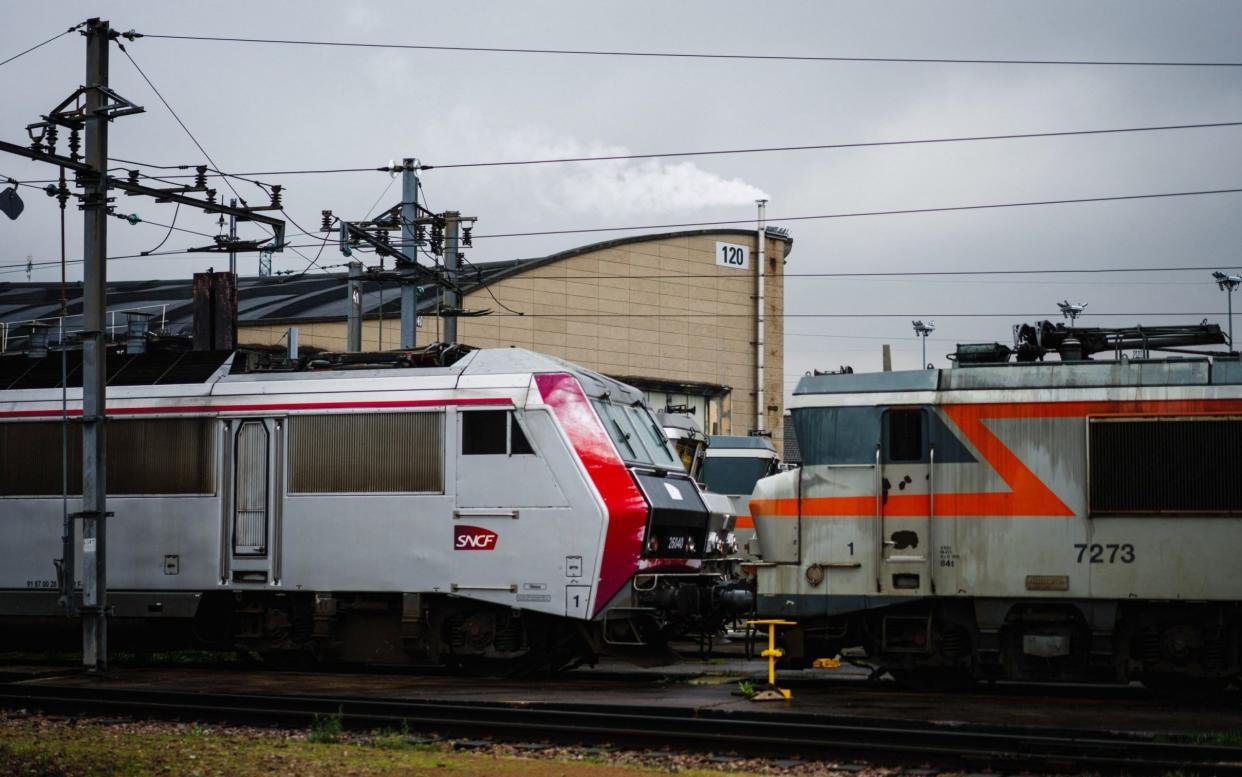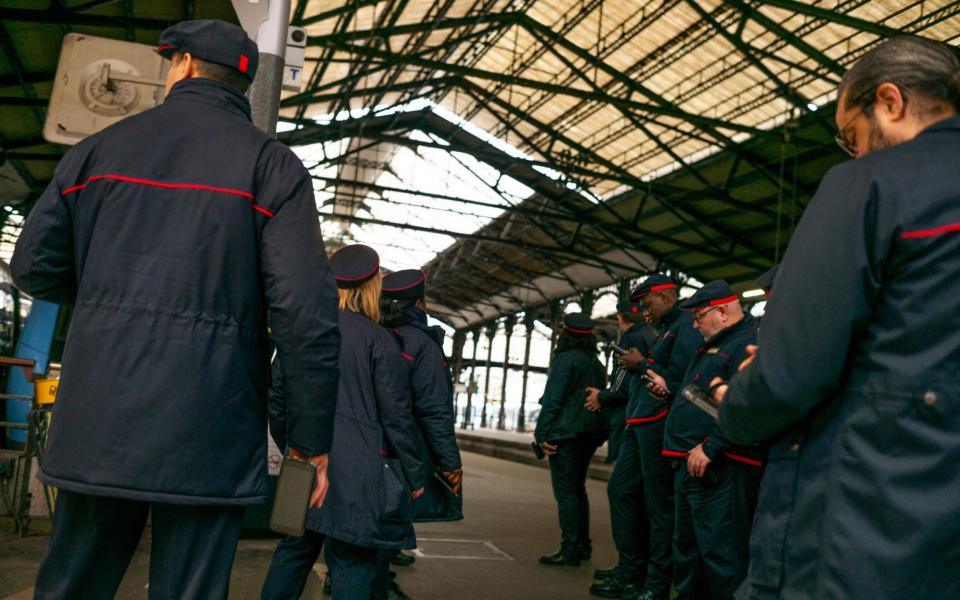French train conductors receive a 10pc share of fines they hand out, SNCF document discloses

French rail ticket inspectors have sparked outrage over reports they receive a 10 per cent share of any fine they hand out, leading some to line their own pockets with spurious penalties.
An internal document belonging to the SNCF, France’s national rail operator, and seen by Le Parisien newspaper, stipulates that train conductors receive the generous commission on fines handed out on the spot on trains.
Failure to get a passenger to pay straight away causes the commission to drop to “less than €1”, according to Alain, a chief conductor on a high-speed TGV line in western France cited by the paper.
“That’s why some conductors are so insistent,” he said. If a passenger voluntarily seeks out a ticket inspector because of an issue, the cut falls to 4 per cent.
“We all know that some of us are overzealous. What’s more, we don’t like being on the same train with them... It always goes badly,” he said, while insisting that “more often than not, most of us are understanding. One shouldn’t generalise”.

French rail staff often get bad press for striking at the drop of a hat while enjoying generous pay and early retirement. Indeed, on Wednesday, the union Sud Rail called a month-long conductors’ strike starting on April 30.
The passenger service SNCF Voyageurs said the commission was put in place to “improve the rate of fine payments” by inciting conductors to get the money up front.
“The fight against fraud is a priority for us,” said SNCF Voyageurs, which said fraud accounted for €200 million (£170 million) per year, “the equivalent of 25 new [overground] TER trains”.
However, staff interviewed by Le Parisien said the system had prompted a “minority” of “overzealous” conductors to hand out a flurry of fines on sometimes spurious grounds.
Unfair treatment
Social media abounds with passengers’ tales of unfair treatment.
Karim was fined €170 (£145) while on a business trip from Paris to Bordeaux because he had his ID card in digital, not physical, format.
“I had my ticket in order, in my name. I showed my photo ID on my phone,” he said. “The ticket inspector told me that only the original counted. She wouldn’t budge.”
The conductor told him to file a complaint and if it was the first time it happened, he would be reimbursed, which proved false.
‘They have to fill quotas’
Marie, 24, bought a €15 (£12.80) ticket and had her ID card only in PDF format and ended up paying €170. “That’s more than 11 times the price of the ticket,” she said.
The conductor then used the information on the PDF to write the fine, suggesting he realised it was bona fide.
“Falsified identity papers are one of the most common forms of fraud. That’s why we’re strict,” conductor Alain said.
Lucas, for his part, said he was “disgusted” by his €100 (£85) fine at the end of February for travelling on an overground train in eastern France with a ticket “not used the day before”, on a journey of just four miles.
“The ticket inspectors didn’t even try to find out what my situation was, whether I could afford to pay... Sometimes, you get the impression that they have to fill quotas. Then they wonder why people prefer taking planes or cars,” he said.
Hugues, another passenger, was fined €270 (£230) for exchanging his second-class seat for a first-class one by mutual agreement with another passenger. Faced with an outcry, his fine was cancelled.
‘Kafkaesque’ system
In an editorial, Le Parisien’s Laurence Voyer slammed the “Kafkaesque” system and asked: “Since when has doing someone a favour been a crime?”
She said clamping down on fraud on overground and metro trains was vital, and indeed, many law-abiding citizens are shocked to see the number of people jumping over turnstiles while “inspectors look on”.
However, targeting passengers who act in good faith for financial gain was quite another matter.
Such cases of “disproportionate” punishment lead to a “huge sense of injustice” and “unbearable dehumanisation”, she wrote.
‘Ambushed’ by inspectors
A similar system is in place on the Paris metro, where ticket inspectors share out a 10 per cent cut of the overall number of fines handed out per month. “We can hand out 15 to 30 fines per day, of which between 20 and 40 per cent are paid immediately,” one unnamed RATP public transport staff member is cited as saying.
One appalled passenger, Frédéric, who is from Lyon, said he was “ambushed” by inspectors whom he had approached because he was confused about whether he had gone beyond the zone limit for his metro ticket.
“They instantly adopted an aggressive tone, telling me I was at fault. I then understood they were there to punish me, not to help me.” He was hit with a €35 (£30) fine on the spot.
“In Tokyo or London, for example, the staff is not so hostile,” he complained.

